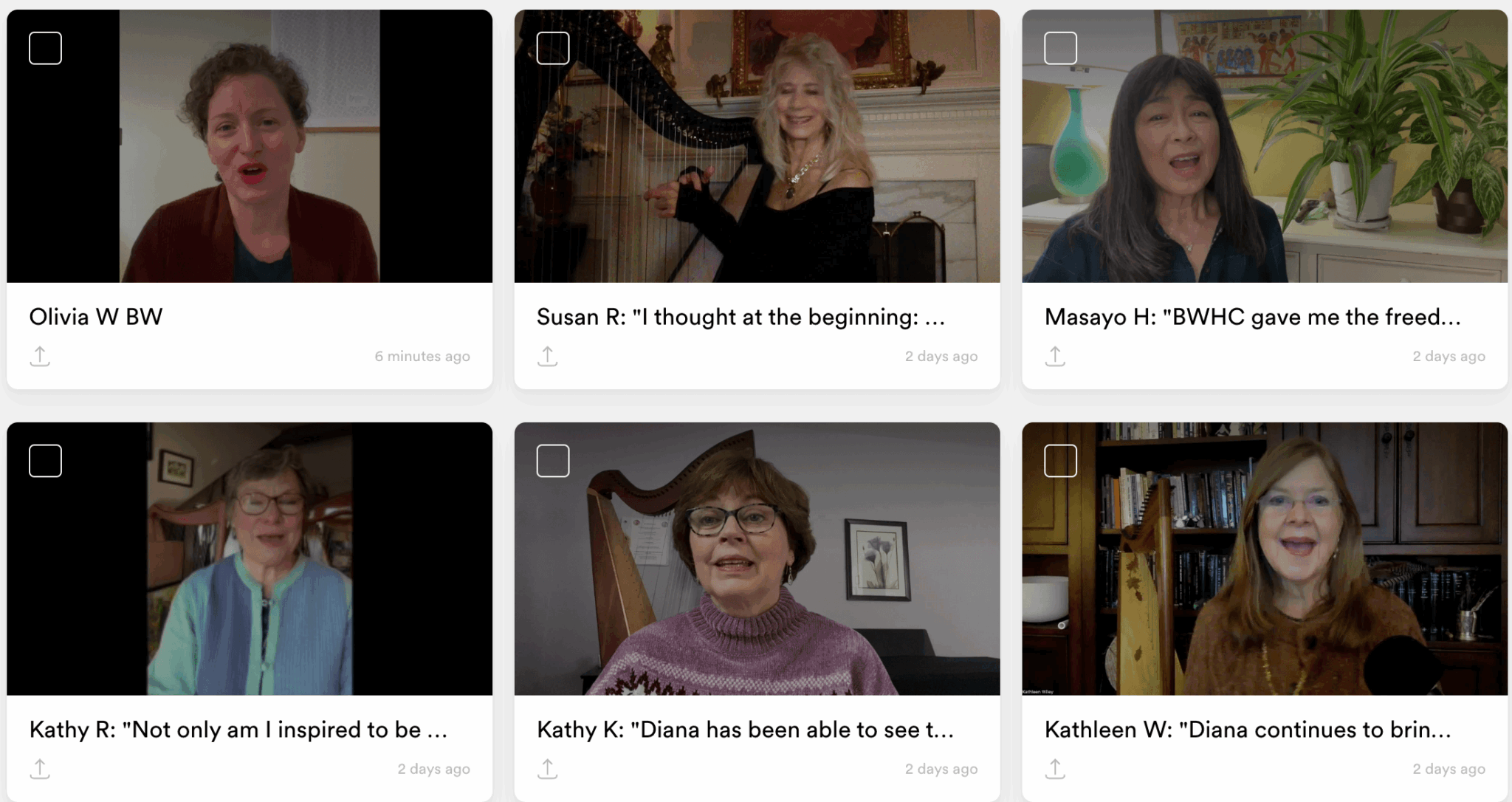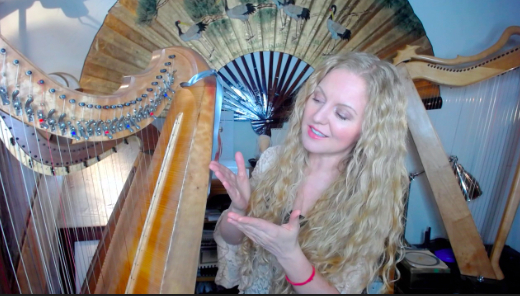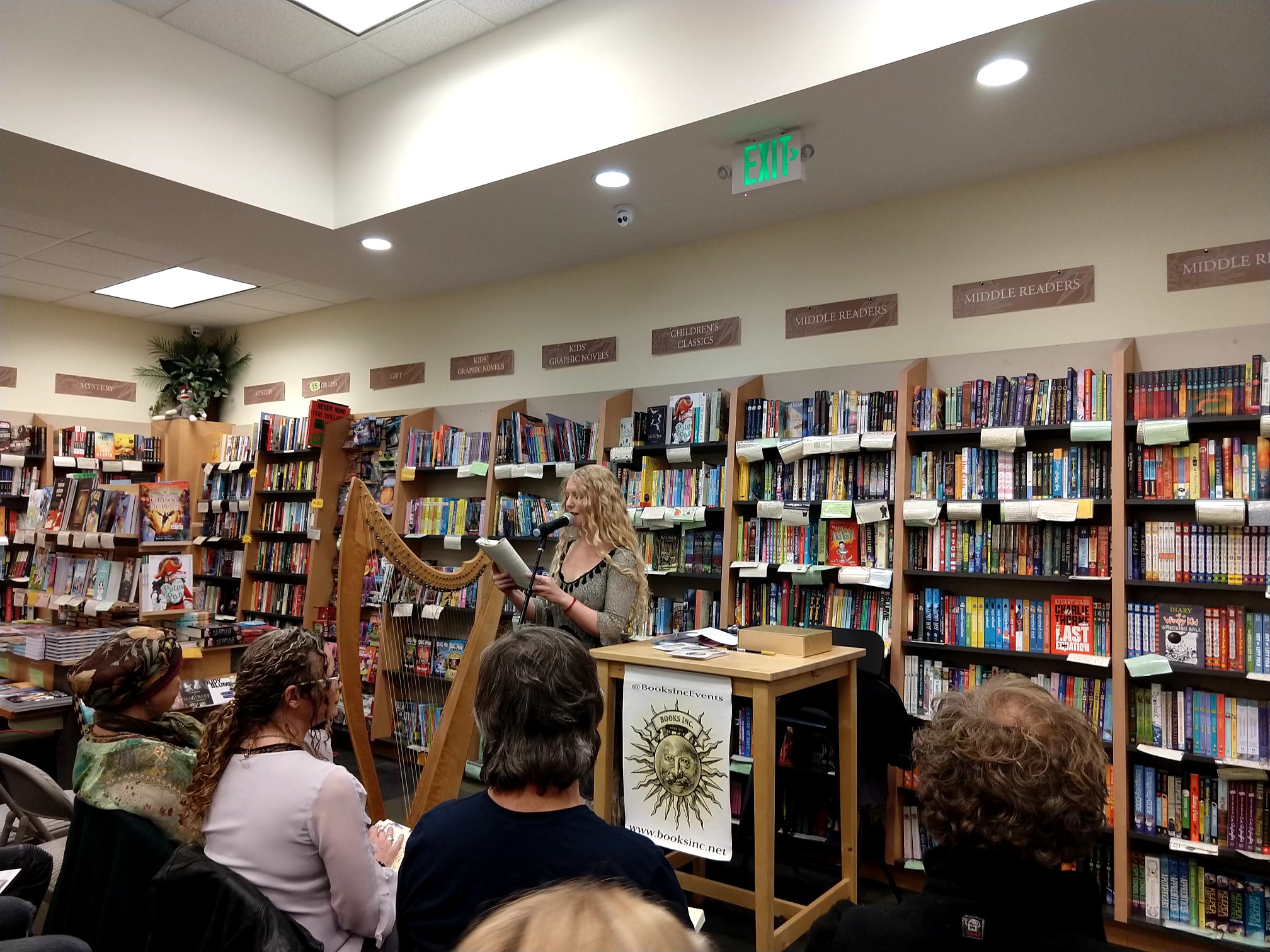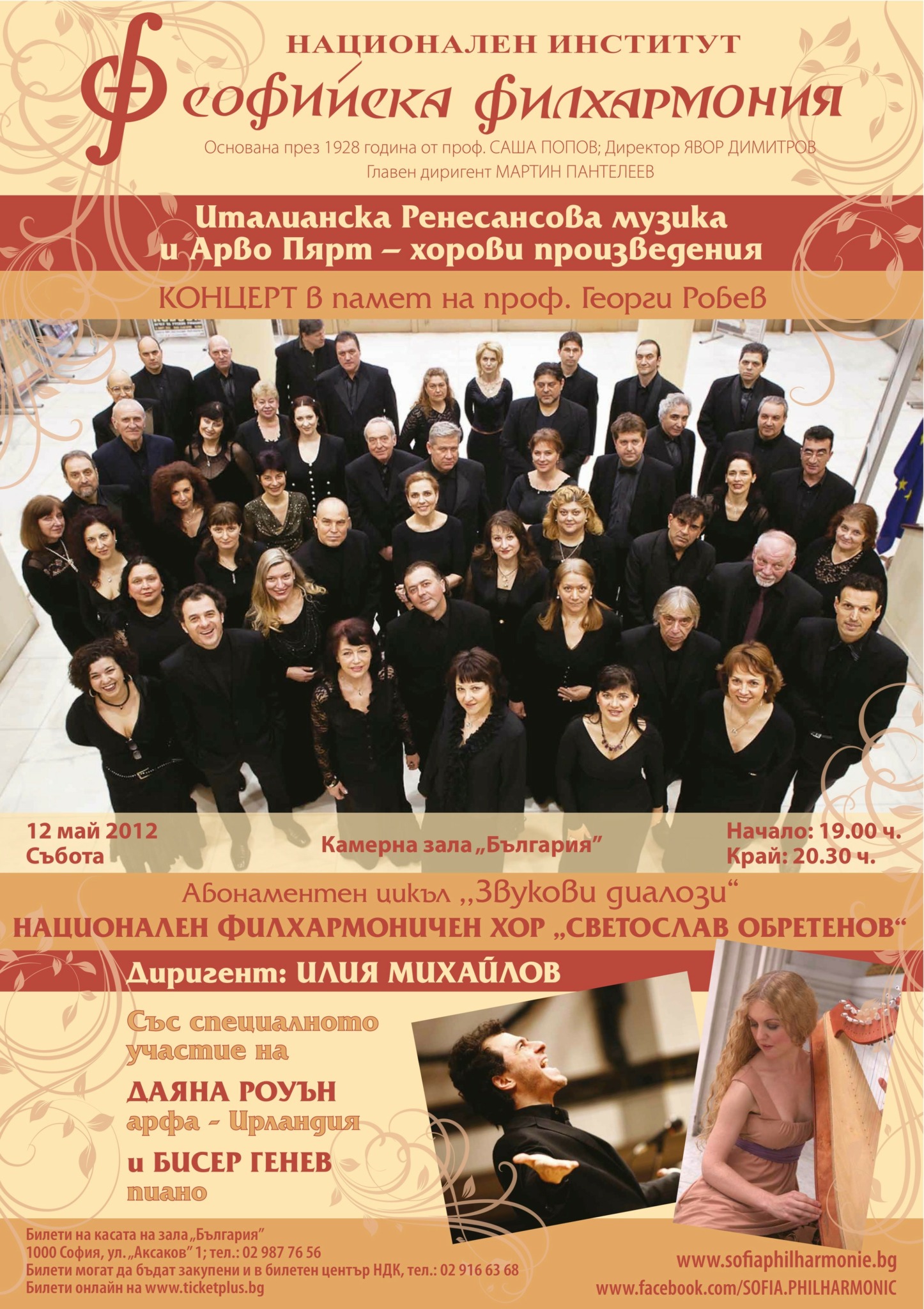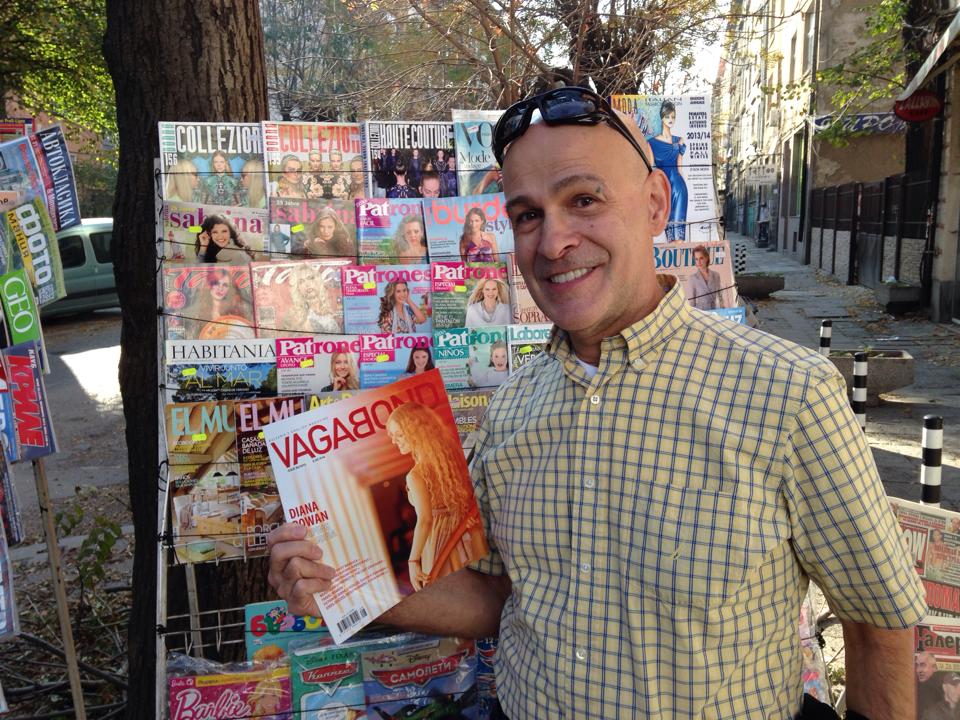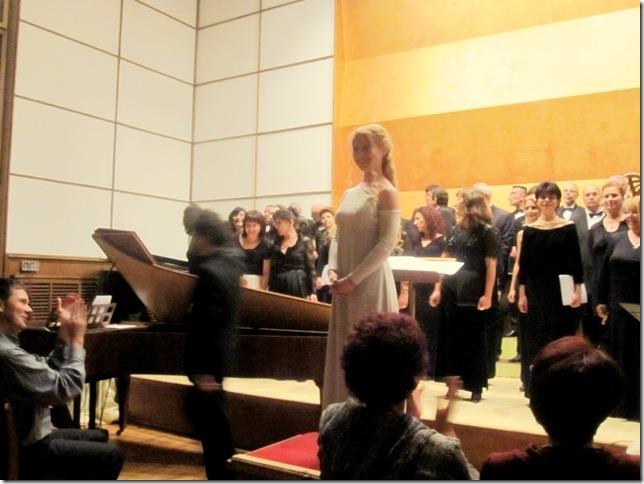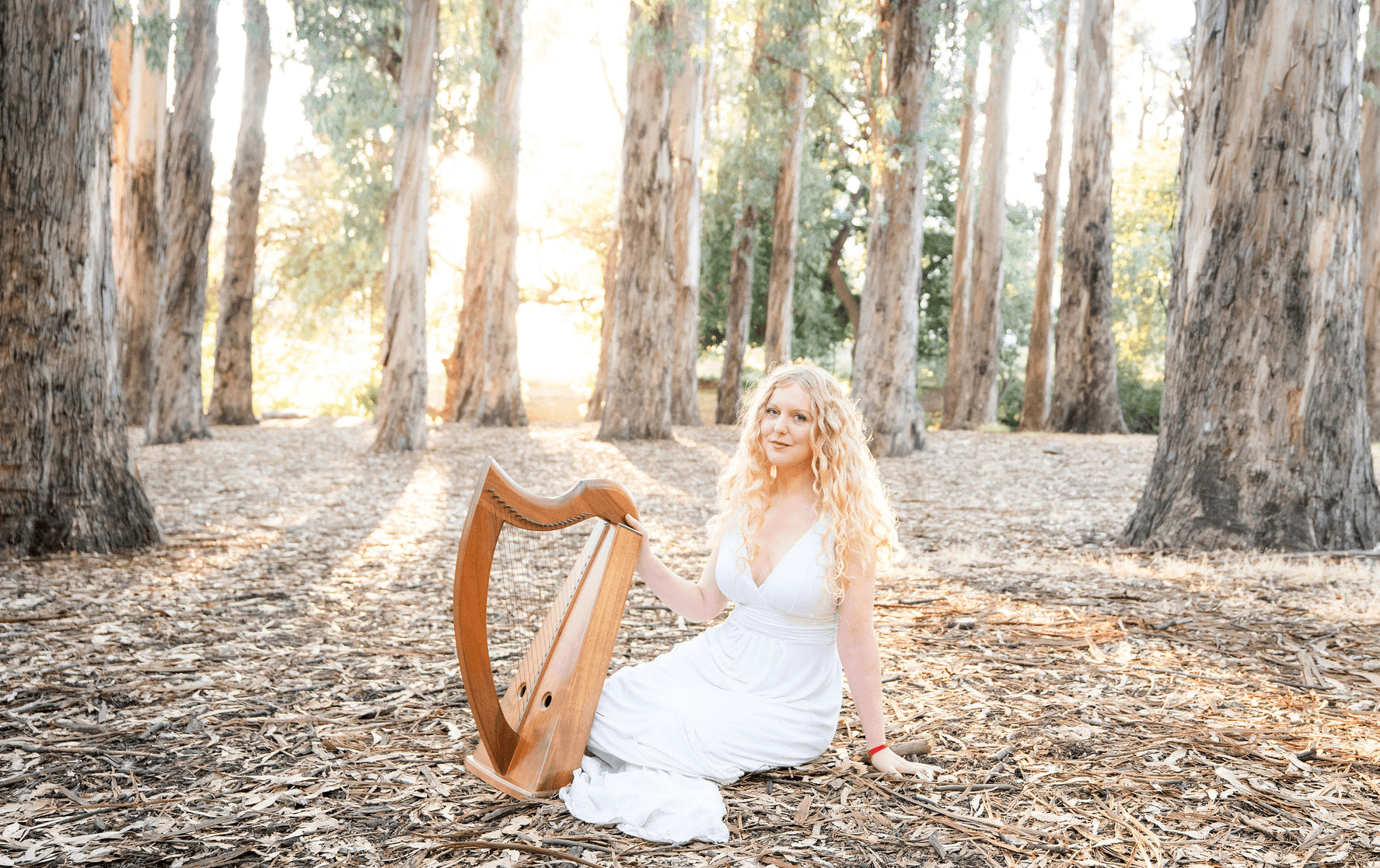We caught up with the brilliant and insightful Diana Rowan a few weeks ago and have shared our conversation below.
Diana, appreciate you joining us today. Learning the craft is often a unique journey from every creative – we’d love to hear about your journey and if knowing what you know now, you would have done anything differently to speed up the learning process.
I feel three things are really important for skill and artistry building:
• Identify things you truly love (whether that be your medium, your genre, your general ethos and message). I feel trying to learn things you’re not in love with leaves out the heart element, making learning much more difficult. There are more than enough options in the world for you to almost exclusively focus on things you adore. True, you’ll take some tangents that won’t be forever paths, but with this attitude of expecting to love what you, you’ll catch them way earlier and still get to learn from them!
Besides progressing more, you’ll also stay way more inspired on your journey, which is the precursor to motivation. You can try to force yourself to be motivated, but inspiration is the true long term fueler of motivation.
• Find mentors who are truly expert in what you love whom you have chemistry with and are also good teachers. This is a big ask, but it’s a big world and you’ll find your mentors. Hold out for this combination of expert-chemistry-excellent teacher. My life was changed by my harp and piano mentors. They saw what I wanted to do and were able to guide me towards exactly that. To this day I think of them often, and I still take lessons from my piano teacher!
• Remove limited thinking such as believing in inborn talent (overrated), the 10k hour rule, that you need to practice 4 hours a day, etc. Question any “rule” like this. There needs to be a solid explanation behind anything you learn. Your mentors will be able to confirm and explain that! A huge amount of my work with creatives is actually unravelling unhelpful learning habits and notions. That is their biggest obstacle, and mine too. Relentlessly question anything that goes counter to a growth mindset.
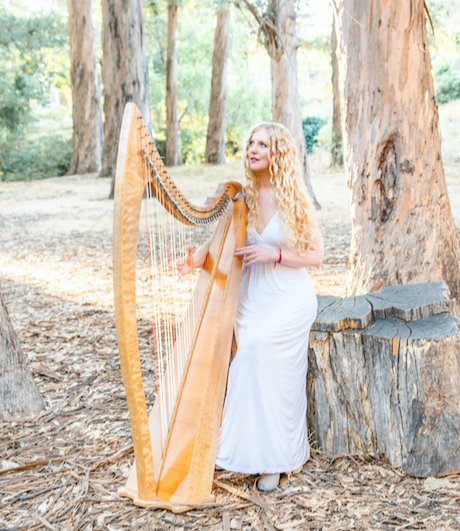
Awesome – so before we get into the rest of our questions, can you briefly introduce yourself to our readers.
I’m a harpist, pianist, composer, author, and creative mentor who helps people reconnect with their authentic creative voice and follow through for the long run.
I was born in Ireland and grew up all over the world as the daughter of an Irish diplomat, surrounded by different cultures, languages, and musical traditions and innovations. That global mix has shaped everything I do and feel. I’ve always experienced first-hand that music is a universal language, a bridge between worlds and a way for us to harmonize with ourselves, each other, and our world at large.
I’ve performed at places as varied as the Smithsonian, the World Harp Congress in Australia, the American Embassy in Vietnam, and cathedrals across Eastern Europe. My solo albums Panta Rhei and The Bright Knowledge weave together the ancient and the modern, Celtic, Eastern European, classical and sacred influences, all filtered through my lifelong fascination with how sound connects us.
Along the way, I earned an MM in Piano Performance and a PhD in Music Theory (harp composition) and founded Bright Way Guild, an academic and mystery school for harpists and other creatives seeking both freedom and structure in their art. My book The Bright Way: Five Steps to Freeing the Creative Within (New World Library) shares the system I developed to help people move through creative blocks and turn inspiration into a sustainable way of life.
I’m most proud that my work is the balance between deep musical discipline and joyful self-expression. It was rediscovering this balance that allowed me to return to music after abandoning it for years due to stage fright/performance anxiety. I love helping others rediscover that spark, confidence and motivation. Seeing their innate light return, especially in these times, is the most rewarding part of everything I do.
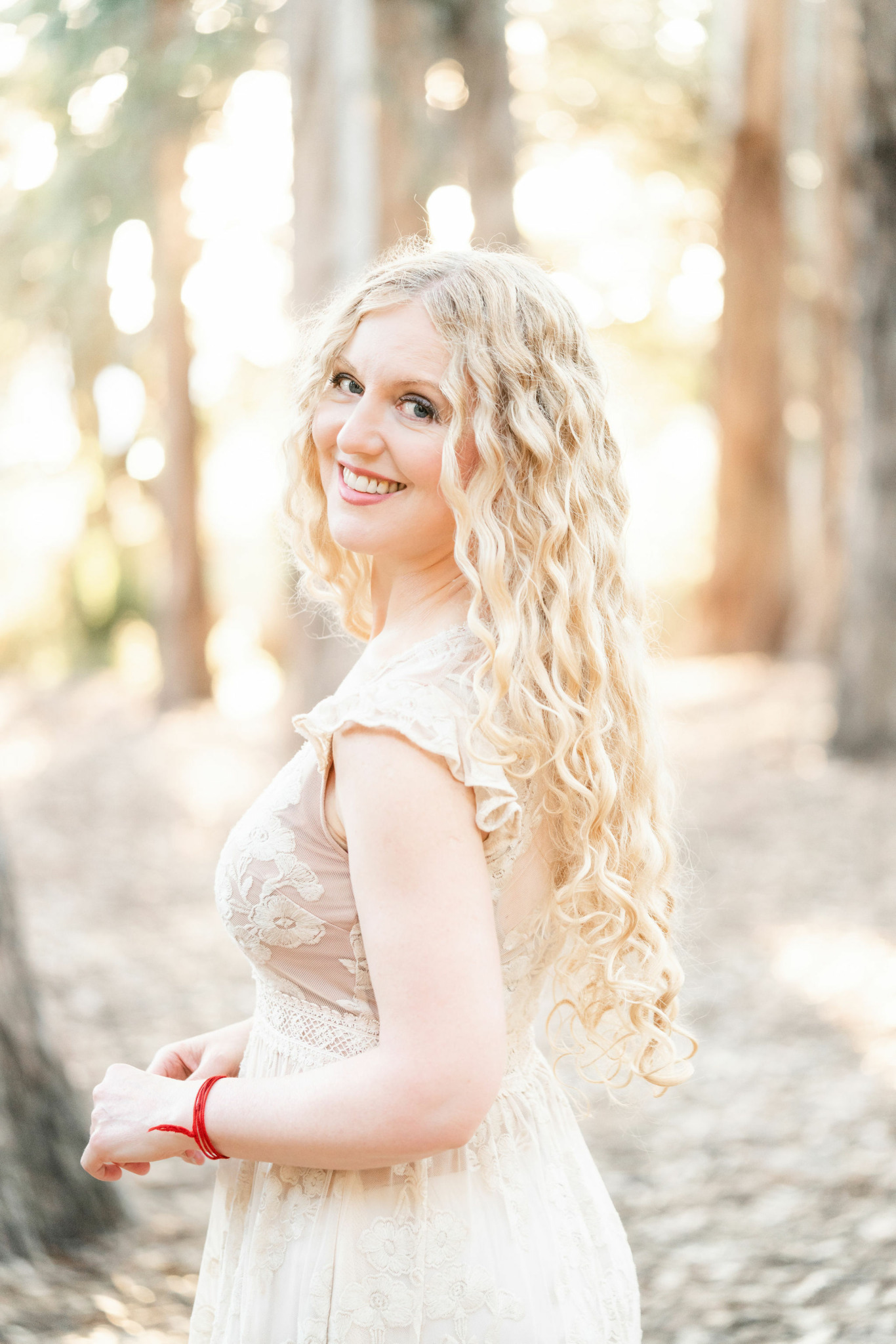
Can you share a story from your journey that illustrates your resilience?
Yes, I’d like to share an excerpt from my book The Bright Way:
The concert finishes, the house lights blaze, and applause rings out. I take a bow happily and bound off the stage to meet my audience. And it happens, as always; among the people surrounding me, several approach with a particular shyness I’ve come to recognize. They hail from all walks of life, yet they share a deeply hidden desire. Sometimes they know my dramatic story of severe performance anxiety and how I finally managed to recover from it. Others know me only as a performer, composer, writer, and teacher and generously assume that I’ve always had confidence and motivation. Either way, there are two things they probably don’t know: the vast potential they hold inside themselves, and how much their story is my story.
Rewind three decades. I remember one concert in particular, a showcase of the top student pianists. When I was fifteen, my diplomat family moved to Baghdad while I attended high school in nearby Cyprus. The concert, which took place during my second year there, was a special occasion for me because my father was present. I was the only representative of my teacher’s studio that evening, so I wanted to make my piano teacher, Kleri, proud. But I was at the height of self-consciousness; my body had betrayed me in a most awkward phase of frizzy hair, braces, and acne. Climbing the stairs to the stage, I felt dumpy, absurd, and fragmented into a thousand shards of stress. Ice-cold nervous sweat trickled down my back and spiked out under my arms as I confronted the looming beast of a piano.
The audience waited silently. I thought about my father and my teacher sitting there in the shadows, expectantly. The room became a vacuum. My ears dialed the silence up to a roar. I launched into Poulenc’s Nocturne no. 1 — only to be catapulted out within three bars. The piano keys — keys that had been my daily companions for almost a decade — mocked me as they danced, rearranging themselves before my eyes. I couldn’t regain a handhold in the music. Clutching at the song, I hoped my fingers would somehow remember what to do on their own. They betrayed me, too, with a grotesque parody of the song I thought I knew so well clanging in my ears. Titters arose from some boys in my class, the same ones who bullied me about my appearance every day. I was mortified that my father had come all the way from Baghdad to witness this fiasco. I felt sure he was ashamed that I was his daughter, especially given that my mother is beautiful and accomplished. I was a total disappointment.
Mercilessly I threw myself in again. This time I made even less headway. My stomach twisted in the knowledge that my teacher was watching all this. She could only feel that I was letting her down in the most public way possible. I dreaded damaging our close relationship. Cringing at the evidence left behind, having sweat all over the keyboard and the piano bench, I fled the stage as quickly as possible. The hall filled with outright laughter from my tormentors and appalled silence from everyone else.
Today people can’t believe I was ever like this. Yet it was in this fiery crucible of suffering that I eventually came to understand our deepest reasons for creating and, further, why our creativity must be given voice. If I hadn’t gone through this degree of pain, feeling as if my very validity as a human being was on endless trial, I wouldn’t have gone the distance it took to uncover the lessons you hold in your hands today. Necessity is the mother of invention, and I needed to escape my personal hell. The mother of invention gifted me generously, ultimately leading me to transform the prison of my fear into the freedom of love. Yes, it was arduous work (and still is sometimes). Reasonably so: it is the Great Work that we all undertake to encounter our true selves.
Knowing what I know now fires me up with enthusiasm to share this truth: there is a brighter way. What you seek, you will find. I want to impart this to all who approach me about their creative issues and anxieties: there are answers to your suffering and your longing. The Bright Way is one of those answers.
My fellow creative seekers reach out to me in many ways: anonymously online, privately via email, safely within my teaching groups and online conferences, through chance encounters in cafés. They believe they struggle alone. Not so: their hidden desires mirror one another’s with striking faithfulness. I’m honored to be privy to their secret hopes and fears. They yearn to find more meaning in what they do and who they are. These seekers long to be part of a bigger picture, to feel they have something valuable to offer. To experience more joy. To live in flow and connection. To believe there is time and space for any of these things.
Urgency marks their voices. These are not mere wants. They are true needs. Since these are such powerful needs, why do we hesitate to share our struggles? Tragically, we often blame ourselves for having these needs. We feel ashamed that our deepest desires have become mysteries to us. We mourn the fading of our once-bright dreams. We feel trapped, like passive watchers of our own lives. Perhaps these feelings have been haunting you, too? If so, take heart: you’re not alone, and even more important, it doesn’t have to be this way.
“Like billowing clouds, like the incessant gurgle of the brook,
the longing of the spirit can never be stilled.”
— St. Hildegard of Bingen, twelfth-century mystic, musician, and healer
I salute all brave seekers. I salute you. Giving voice to your frustration can be painful and scary. Yet it’s a crucial first step toward fulfilling yourself creatively. Taking a stand for your desires (even if only in private) automatically directs you toward change, as my harp student Edela explains so well: “Just listening to music isn’t enough for me. It is as senseless as trying to be nourished by a beautiful photograph of food rather than having food before me.”
The popular professor tortured by Impostor Syndrome so extreme that he literally pulls his hair out; the pianist who has played for twenty years, though no one, not even her parents, has heard her because of her performance anxiety; the writer who has lost faith that creativity even matters in this crazy world; the successful businessperson who is terrified he will look foolish by indulging his longing to improvise; the dedicated amateur artist who suspects she doesn’t really “have it” and never will; the jaded professional artist who is loath to admit he has tired of his craft; the busy mother who fears she has traded her creativity for child-rearing. Despite how different these people are, their core story is the same: they feel a wrenching disconnection from what they rightly believe are their true selves.
I remember these feelings myself. Simply recalling those grim days activates the horrible pull of that void. The words of Wendolyn Bird, founder of an outdoor preschool, storyteller, and harpist, echo exactly where I once was: “I’ve stopped performing due to anxiety. I won’t play in front of people, even though I actually love to do so. I feel sad, frustrated, angry, and alone for not being able to just play freely and when I wish to. It stops my practice and/or alters it so that I never learn anything or advance to the point of being able to play even with friends.”
Although the stories I’ve shared so far focus mainly on performance anxiety, the lessons this plight has taught me hold true for all creative endeavors. Performance anxiety is an extreme manifestation of the fears we all hold inside us when it comes to engaging and sharing our creativity. As such, it’s a powerful lens through which to examine what it takes to reclaim your creativity for life.
It’s hard to believe just how common the suffering caused by disconnection from our creativity is. But I’ve seen it with my own eyes. Repeatedly, and over many years. I thought my problems were unique until I started teaching music and collaborating full-time with other creative people from around the world. I worked with everyone from beginners to seasoned pros of all ages and backgrounds, and clouds of anxiety, burnout, frustration, and grief haunted us all. People three decades older than I became as vulnerable as little children, crying as they finally exposed their lost hopes and dreams in the privacy of my studio.
The stakes felt hair-raisingly high. The deepest questions of what makes life worth living were being presented to me. Simply living and growing older didn’t answer those questions. As a child, in awe of the adults surrounding me, I always assumed that somehow we’d all just figure things out over time. Now I know how many of those adults must have really felt — and many still feel — inside.
It was a lot to take in and hold. What could I do about it? Even though it was a relief not to be alone in my own struggle with performance anxiety, watching others suffer through it was torture. As the teacher, I felt duty bound to dredge up some sort of solution. But what? For a long time, I was barely one step ahead on the outside and often felt a league behind on the inside.
This struggle isn’t just about you and me. It’s about all of us. Even those who appear to live creative and successful lives on the outside often feel like frauds on the inside. This sense of disconnection casts a dreadful spell over our world. The consequences? Increased anxiety, depression, frustration, lack of motivation, loneliness, creeping hopelessness about our capabilities and even our futures as work options shrivel and mortality rates rise. This malaise infects our spirits, our families, our communities. The pain is real.
Astonishingly, given the scope of this scourge, an antidote does exist. It has for a long time, and it is hidden in plain sight. It is an approach, a way of life, that is simple and can be applied to every creative activity you engage in. It is a path that returns you to your true self, resurrecting your innate joy, honing your complementary powers of skill and intuition, and giving you the courage to reclaim your purpose, your creativity, and your destiny.
Whether you believe that life has inherent meaning or that the whole of existence is a preposterous accident, this way still holds true. From the spiritual teachings of Plato, Buddha, Jesus, and St. Catherine of Siena to diverse world belief systems, all the way to the nihilism of Nietzsche, the existentialism of Camus, and the “unselfing” of Irish philosopher Iris Murdoch, the conclusion has been the same: the meaning of life is to connect with life.
And what is one of the surest and most beautiful ways to connect with life? In a word, it is to engage your creativity.
I’m willing to make this claim because I’ve experienced it time and time again. And this is why I developed the Five Step Bright Way System: to give you (and myself!) a way to reignite and follow through on your magnificent creativity, starting today.
I have many favorite stories of the rewards gained from living this philosophy, so let me highlight just a few: the photographer rejecting plans to attend law school and transforming a jaded perspective of their work as being “just a cash register” into an unprecedented devotion to cultivating artistic community. The accomplished veteran musician catapulting herself to an inspired level of artistry after twenty years of uneventful practice. Our Edela, a retired school principal who fulfilled her lifelong dream of taking up the harp and performed in public regularly within a year of working with me, despite a seven-decade-long history of performance anxiety.
And Wendolyn, whom you met a few pages back at the height of her frustration? She reports on performing at her daughter’s wedding, an event of huge import and pressure for her: “An exuberantly joyful day for me today! After forty-five years of playing the harp and practicing in a way that no longer serves me, I found my own rhythm and joy. My connection to the harp has greater depth now, and I found an entryway into allowing myself to be with what was deeply congruent with the essence of me in the moment. I am grateful to have this place to share my joy. Thank you to any who have received this moment with me.”
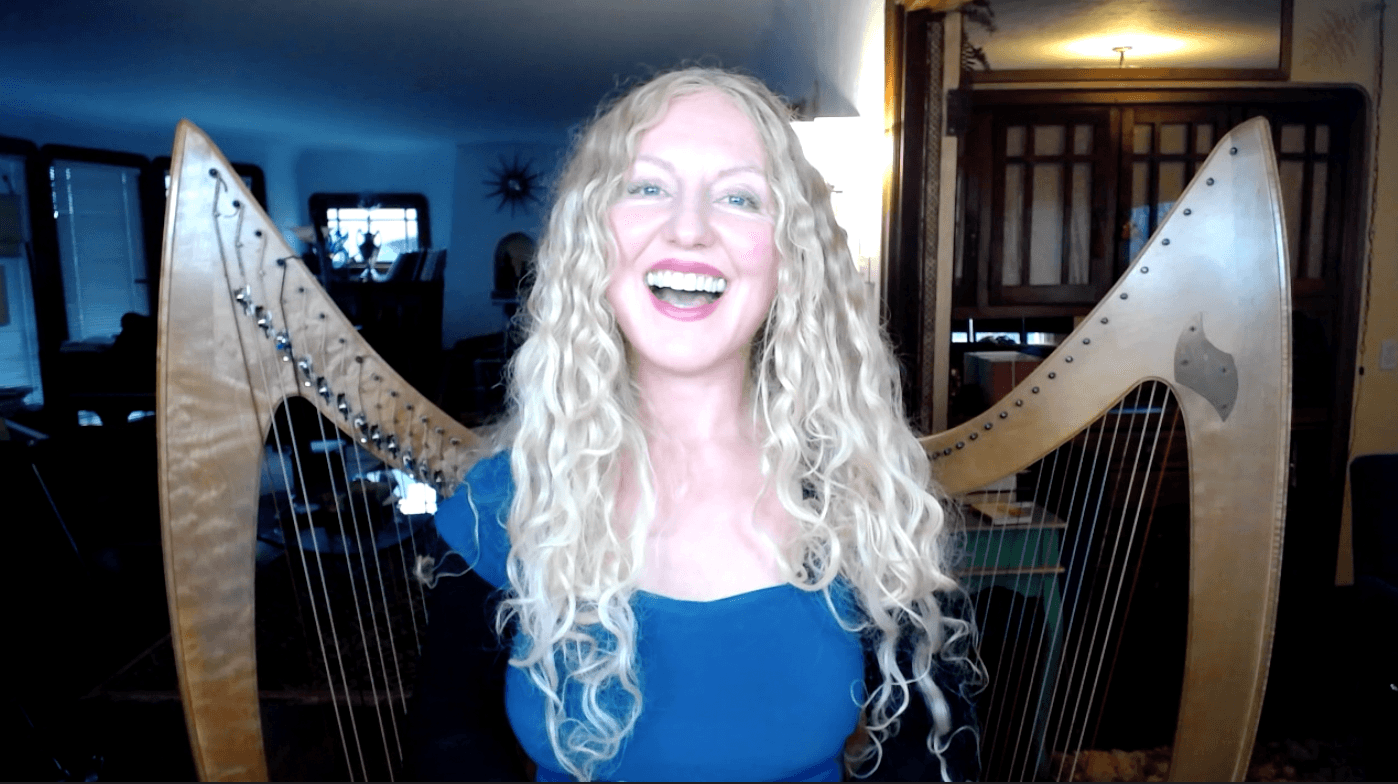
Are there any resources you wish you knew about earlier in your creative journey?
I wish I had my main mentors earlier. They would have been able to help me avoid so many pitfalls and helped me feel more confident so that I wouldn’t have spiraled into abandoning music. Community is essential for creativity, and I wish I had had more of it earlier. Instead, I had the usual model of one music teacher, once a week. That was almost my entire creative community, and it was far too little. Now I see how the dear members in my membership thrive through supporting each other, being exposed to true life experience, and achieve things that seem impossible from the outside (such as starting harp at 70 and becoming a professional performer with an almost too packed schedule by 75! :) )
Contact Info:
- Website: https://dianarowan.com/
- Instagram: https://www.instagram.com/dianarowan
- Facebook: https://www.facebook.com/DianaRowansBrightWayGuild
- Linkedin: https://www.linkedin.com/in/dianarowan/
- Youtube: https://www.youtube.com/@DianaRowanBrightWay
